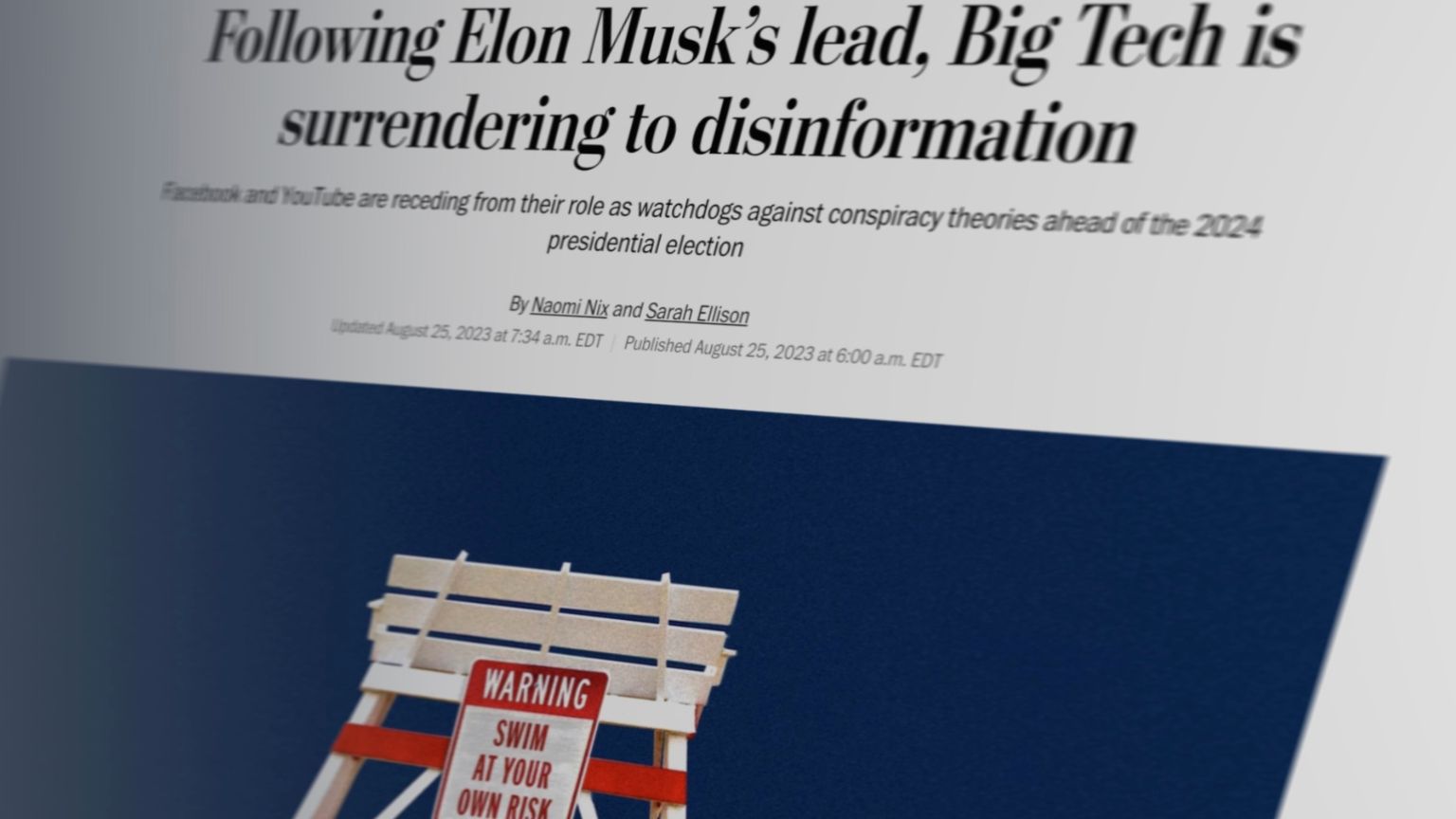In very post-2016 fashion, The Washington Post last week published an article implying democracy might require curbs on freedom of speech. This unsettling approach suggests concerns around “misinformation” on social networks supersede freedom of speech, a move that has elicited intense debate and, rightly so; criticism.
In what appears to be a shift in public discourse towards further censorship, the widely-read Washington Post article critiqued Elon Musk’s reinstatement of former President Donald Trump on the social media platform, X, previously known as Twitter.
Related: Journalists vs Free Speech
The article suggested that the proliferation of what it calls “political misinformation” disturbs democracy, sparking concern amongst proponents of free speech.
The perspective is reflected in the reporting by The Washington Post journalists Naomi Nix and Sarah Ellison. However, their piece lacks critical analysis of the ambiguity surrounding the term “misinformation” and fails to address the consequential question of how to moderate content in situations where politicians’ statements are arguably false or misleading.
The article’s glaring omission of any mention of the First Amendment – a core pillar of American democracy fostering media freedoms – also raised eyebrows amidst media and legal circles.
The Washington Post reporters worryingly suggest the retreat of social media companies from combating online falsehoods could impact the 2024 presidential election. They fault Musk, along with Facebook and YouTube, for taking a step back from reining in what they call misleading claims and conspiracy theories.
Nix and Ellison also critique X for permitting Tucker Carlson’s President Trump interview, which they deem as a platform for Trump to reiterate his allegations about the 2020 election. They contend that social media should only host political content if its accuracy can be proven, posing an unrealistic expectation that conceals underlying issues of censorship under the pretext of curbing “misleading” or “hateful” speech.













